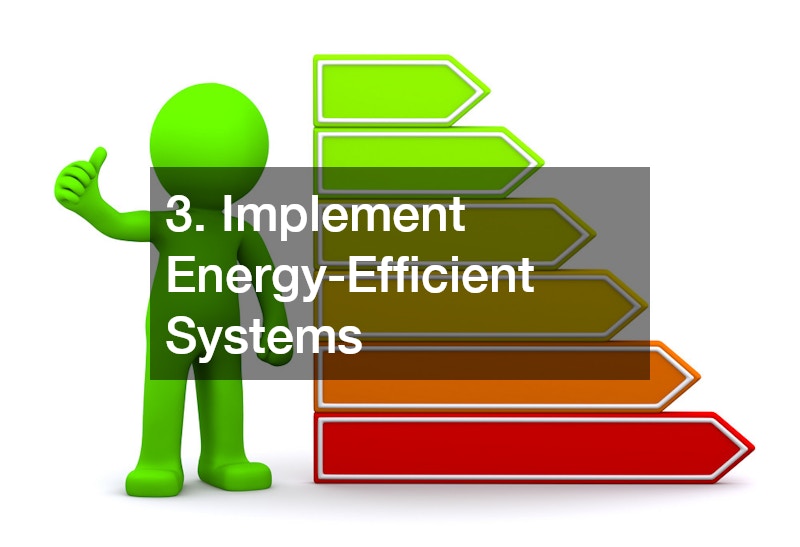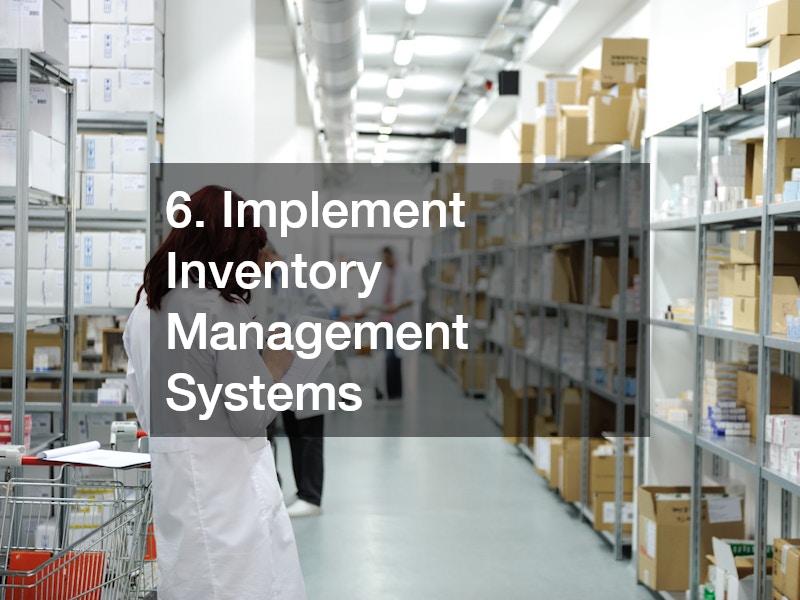Small businesses are constantly looking for ways to reduce costs in an ever-increasingly competitive market. Cost reduction solutions can be used to help businesses maintain or increase their profitability. They do this by streamlining operations and negotiating better deals. The principles and strategies of cost reduction can be applied to any business, whether it is a gutter company, a moving service, or a local demolition firm.
This article will explore ten cost-reduction solutions you can use to optimize your business. These strategies, which range from contract negotiations to office downsizing, can help any company achieve financial stability and efficiency, regardless of whether it is a well-drilling company or an asphalt paving firm.
The solutions presented here are tailored to the specific needs of each business while still offering strategies that work for all types. It is our goal to provide business owners with real-world insights they can implement immediately to reduce their operating costs. This article will guide you on your journey to reduce expenses without compromising service or quality. It is a delicate balancing act requiring sharp insights and savvy leadership. Let’s start by learning how to reduce operational costs for better financial results in your business.
1. Streamline Your Operations
A gutter installation business can save money and improve efficiency by streamlining its operations. A company can cut labor costs by focusing on streamlining workflows and eliminating redundant tasks. By investing in software that automates estimating and planning, you can spend less time on administrative tasks and focus more on client interaction and project completion.
Optimizing your supply chain is part of streamlining operations. Build relationships with reliable suppliers and implement effective inventory practices. This can reduce waste and make resources more efficient. The regular review and update of standard operating procedures will also improve resource management and reduce costs.
Investing in your employees’ training can increase their productivity and improve their job satisfaction. Well-trained employees are more efficient, and they make fewer mistakes. This can result in cost savings over time. Continuous learning and development can keep your staff up-to-date on the latest industry practices. This will ensure that your business remains competitive and runs at maximum efficiency.
Using advanced technology and tools can enhance efficiency in gutter installation companies. Modern equipment, such as automated measuring devices and precision cutting tools, allows for faster installations and minimizes waste. Mobile technology can be used to streamline communication for field teams, providing real-time updates while reducing delays due to miscommunications or incomplete information. Leveraging the latest technology allows a business to improve its quality and speed, reduce costs, and increase customer satisfaction.
2. Negotiate Supplier Contracts
Negotiating better supplier contracts can be a great benefit to a well drilling company. A company can get the best price for materials and equipment by comparing bids from different suppliers. It not only helps to reduce direct costs, but also improves the management of cash flow.
Long-term contracts can offer cost savings. Many suppliers will offer lower rates if they know that their business is guaranteed for a longer period. Developing strong relationships with suppliers can also lead to better payment terms, such as longer payment periods or discounts for bulk purchases.
You should also monitor the market constantly and be open to renegotiating your contracts on a regular basis. You can always get the best deals if you maintain a flexible but firm approach. A dedicated procurement team can help identify and implement cost-saving solutions that are specific to well drilling companies.
3. Implement Energy-Efficient Systems

Implementing energy-efficient solutions for a moving business can have a dramatic effect on operating costs. Fuel-efficient vehicles will reduce your fuel costs over time. If possible, opting for hybrids or electric cars can maximize your savings and help you create a sustainable business model.
Fuel consumption can be reduced by taking additional energy-saving steps, like optimizing routes for a shorter travel distance or reducing idle time. GPS tracking systems can be used to monitor and manage routes, as well as track vehicle performance. Ultimately, this leads to reduced transportation costs and faster service delivery.
The concept of energy efficiency doesn’t just apply to cars. Energy-efficient HVAC, lighting, and insulation can be used in office spaces. Energy costs can be reduced by simple measures like using energy-efficient appliances and smart thermostats. These actions reduce costs and enhance the reputation of your company as an environmentally-friendly business.
4. Outsource Non-Core Functions
Outsourcing non-core functions can be a great benefit to a pool maintenance business. Specialized firms can effectively handle tasks such as marketing, accounting, and customer service. It allows businesses to concentrate on their core services while taking advantage of the expertise and efficiency provided by specialized service providers.
By reducing the number of full-time employees required to perform these tasks, outsourcing can save significant amounts of money. This eliminates costs for benefits, training and office space. It makes sense financially, especially for small businesses who may not have enough resources to keep a large team in-house.
Outsourcing can also provide access to the best technology and practices of specialized companies. It ensures that non-core functions are carried out efficiently and effectively. It can improve overall performance and increase customer satisfaction as the core team can devote more time and resources towards improving the primary service offerings.
5. Reduce Travel Expenses
Reduced travel costs can result in substantial savings for a local demolition firm. Technology can be used to reduce the need for meetings. Video conferencing and collaboration software can reduce travel costs and improve communication and project management.
Planning and booking ahead can save money when travel is inevitable. Travel management software helps find the best prices on hotels, flights, and car rentals. Encourage employees to carpool or use public transportation in their locality. This can help reduce travel expenses.
A policy that controls and monitors the travel budget can be very beneficial. Set clear guidelines for acceptable travel expenses and encourage employees to be cost-conscious. This can lead them to spend more wisely. It is also possible to identify more cost-effective solutions by regularly reviewing travel expenses.
6. Implement Inventory Management Systems

Implementing an effective inventory management system can result in significant cost savings for a septic business. This could include investing in software to track stock levels, sales, and deliveries. Automated systems can help reduce the risk of overstocking, understocking, and wasteful resource use.
Inventory audits are a great way to improve inventory management. They can help identify a slow-moving stock or outdated inventory that could be wasting capital. Just-in-time inventories ensure that only the materials needed are ordered and received, which reduces storage costs and minimizes waste.
Using data analytics can also help plan and optimize inventory levels. It ensures the right amount is always available, reducing carrying costs and improving efficiency. These cost-reduction solutions can have a significant impact on the profitability of a septic business.
7. Downsize Office Space
Downsizing the office space of an AC company can result in significant cost savings. Rent and utility costs can be reduced by assessing the space requirements and eliminating under-utilized or unused areas. Flexible work arrangements such as hot-desking or remote working can reduce the need for large offices.
Co-working spaces are a great alternative to traditional office leasing. These spaces are often available with flexible leases and shared amenities that reduce the cost of office maintenance. It is especially useful for small businesses who need professional space without having to commit to long-term leasing.
Investing in mobile and versatile office equipment will also reduce the space required. Multifunctional devices that can print, scan, and copy are less expensive and take up less space. These strategies will ensure that any cost savings achieved by downsizing won’t negatively affect the productivity or efficiency of the company.
8. Investing in Employee Training
Investing in employee training can bring long-term rewards to a dumpster rental business. Employees who are well-trained are more efficient and make fewer mistakes. They also provide better service to customers. This improves the operational efficiency and also increases customer satisfaction.
Regular training ensures that employees stay up to date with industry trends, safety protocols, and operational best practices. This can result in more innovative processes and approaches within the company. Investments in certifications and training can give you a competitive advantage in the market.
Employees who feel valued and have opportunities to grow are more likely than others to remain with the company. This reduces recruitment and training costs. Learning and development is a key component of any cost-reduction strategy.
9. Reduce Paper Use
Reduced paper usage can be beneficial to a spray foam insulation business, both in terms of cost-savings and operational efficiency. A digital documentation system can reduce the amount of physical storage space required and costs associated with printing, paper and maintaining copying machines.
The use of electronic communication and invoicing can simplify processes and reduce administrative expenses. Digital signatures and document sharing online can speed up transactions and approvals. This leads to faster turnaround times for projects. Cloud storage solutions make documents easily accessible and secure. This improves operational efficiency.
Encouragement of digital workflows can reduce paper consumption by a significant amount. The employees can be taught to use digital applications and tools for their daily tasks. This will eliminate the need for paper. Over time, these small changes can add up to a significant reduction in costs while also promoting sustainability.
10. Bundle Insurance Policies
Bundling policies of insurance can result in significant savings for an asphalt paving business. Businesses can benefit from discounts and better rates by consolidating their insurance policies. This simplifies insurance policy management and can result in significant financial savings.
By regularly reviewing and updating the insurance coverage, you can ensure that your company isn’t over- or under-insured. To avoid unnecessary expenses, it’s important to update policies to reflect any changes to operations, staffing, or inventory of equipment. A broker can help you find the best coverage for your budget by consulting with them.
Exploring risk management strategies will further reduce insurance costs. Safety and training programs reduce the risk of accidents, which can lead to lower insurance premiums. An insurance management approach that is proactive will ensure an asphalt paving business has adequate coverage while optimizing costs.
It is vital for any small business to implement cost-saving solutions. Businesses can save money and improve their bottom lines by streamlining operations, negotiating more favorable supplier contracts and implementing energy efficient practices. These strategies can be customized to fit your needs, whether you run a gutter installation business, a drilling company or another type of small company.
By reducing the travel costs and outsourcing non-core business functions, you can ensure that your resources are focused on your primary activities. Implementing inventory management systems that are efficient and downsizing the office can reduce overhead costs. Training employees increases productivity and decreases turnover while cutting down on paper usage and bundling your insurance policies, which can further reduce operational costs.
Cost management is a continuous process of assessing and adapting strategies in order to meet the changing needs of an organization. Being proactive and looking for new ways to save money can lead to long-term financial stability and continuous improvement. These cost-saving solutions will help small businesses such as local demolition companies and septic companies thrive in an increasingly competitive market while maintaining high service standards and quality.
